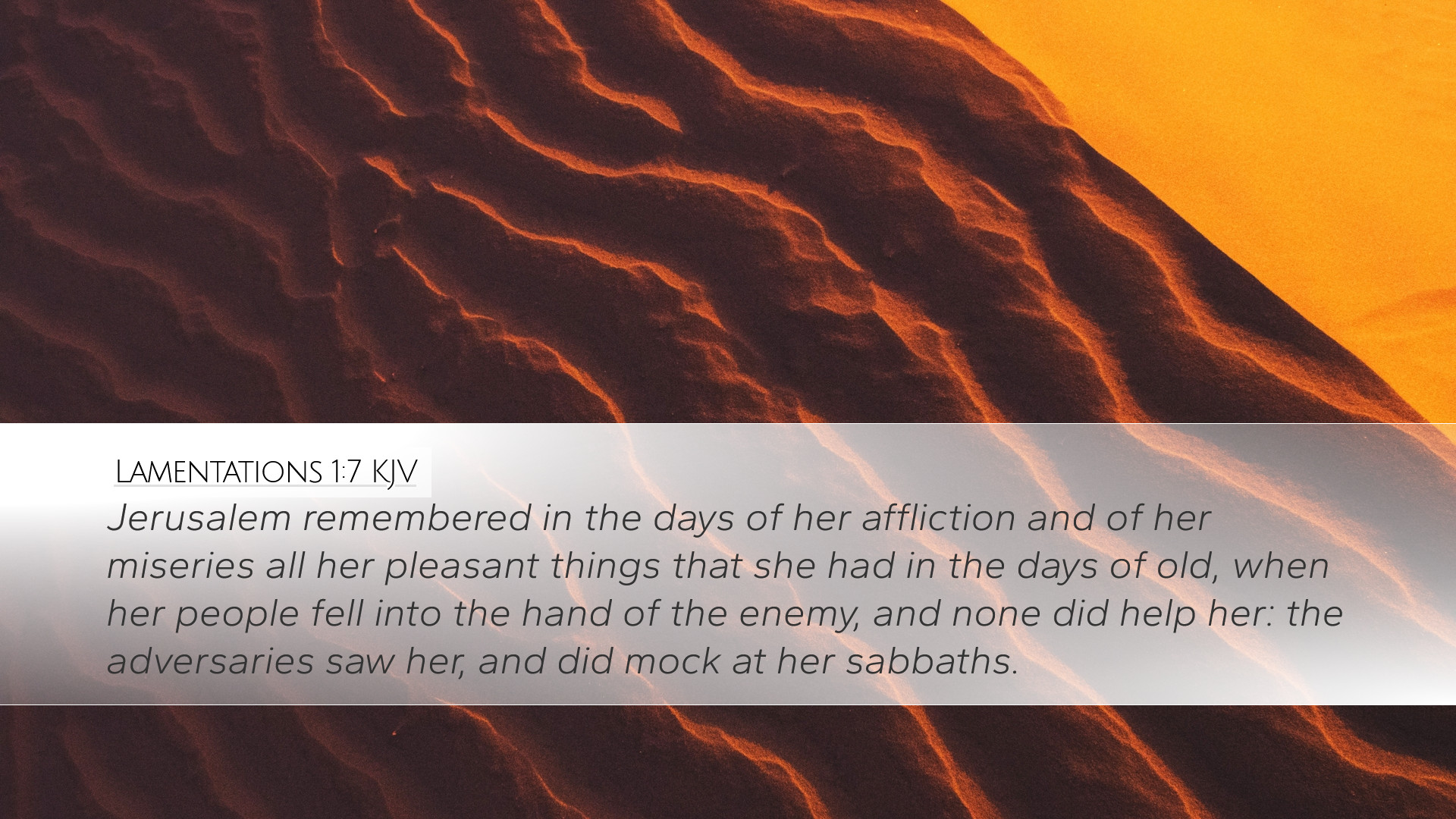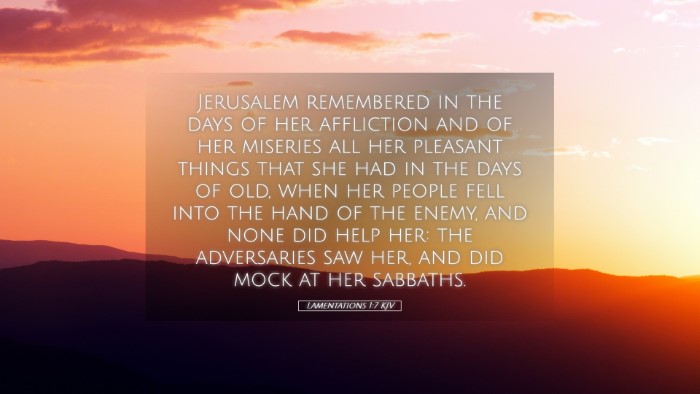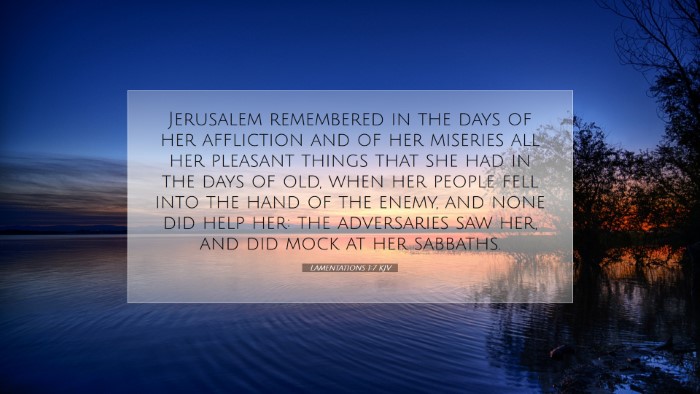Lamentations 1:7 Commentary
Bible Verse: "Jerusalem remembered in the days of her affliction and of her miseries all her pleasant things that she had in the days of old..." (Lamentations 1:7, KJV)
Introduction
The Book of Lamentations offers profound insights into the nature of suffering and the human condition, particularly in the context of Israel's exile and loss. In Lamentations 1:7, we encounter a poignant reflection on Jerusalem's reminders of its former glory.
Contextual Background
The historical context of Lamentations is crucial for understanding this verse. Written after the Babylonian conquest of Jerusalem in 586 BC, the book expresses deep sorrow and mourning over the destruction of the city and the temple. This context amplifies the significance of the memories described in this verse.
Historical Context
- Destruction of Jerusalem: The city faced devastation and exile, deeply impacting its identity.
- Spiritual Loss: The temple's destruction symbolized a loss of God's presence among His people.
- Collective Memory: The lamentation reflects a community grappling with their shared trauma.
Exegetical Insights
This verse emphasizes the remembrance of both "affliction" and "miseries," suggesting a dual recognition of suffering and nostalgia. The use of "days of old" highlights the contrast between past joy and present sorrow.
Key Phrases
- "Remembered": Indicates active reflection, a necessary process for grieving.
- "Days of her affliction": A reference to the current state of suffering and despair.
- "Pleasant things": Evokes memories of blessings and prosperity, now overshadowed by loss.
Theological Reflections
This verse invites theological reflection on themes such as memory, suffering, and redemption. It serves as a reminder that remembrance is a vital part of the human experience, especially in light of communal and individual grief.
Memory as a Theological Concept
Memory in biblical literature often serves a dual purpose: it is a source of lamentation and a way to evoke hope. As believers recall their past experiences and God's faithfulness, they can find a pathway toward healing.
Christian Application
The Church, like Jerusalem, has its moments of glory and affliction. This verse encourages believers to remember the past while recognizing the present struggles, prompting a hopeful outlook towards restoration through Christ.
Commentary from Matthew Henry
Matthew Henry expounds on this verse by emphasizing the sorrow of Jerusalem and its inhabitants. He notes that true remembrance involves a recognition of both the circumstances of despair and the awareness of what has been lost. Henry asserts that remembrance should lead to repentance, acknowledging the sin that often precipitates suffering.
Commentary from Albert Barnes
Albert Barnes comments on the pragmatic aspect of memory in this verse. He suggests that the remembrance of the "pleasant things" should urge the people to reflection and self-examination. Barnes underscores the importance of reflecting on God’s past blessings as a means of fostering hope amid distress.
Commentary from Adam Clarke
Adam Clarke highlights the emotional toll that the devastation has taken on Jerusalem. He writes about the anguish encapsulated in this remembrance. Clarke interprets the verse as a call for the people to lament not just their present sufferings but also to seek God earnestly, remembering His previous acts of mercy and deliverance.
Practical Applications
- Encouragement to Reflect: Pastors can encourage their congregants to reflect on both hardships and God’s faithfulness as a source of strength.
- Community Lament: Engage in communal prayers and laments, recognizing collective suffering while invoking hope.
- Teaching on Memory: Educators can teach the importance of remembering God’s deeds to foster a resilient faith.
Conclusion
Lamentations 1:7 stands as a powerful reminder of the need to remember, especially in times of distress. By integrating insights drawn from historical context, theological reflection, and noted commentaries, this verse can serve as a profound teaching tool for understanding grief and hope in a broken world.


